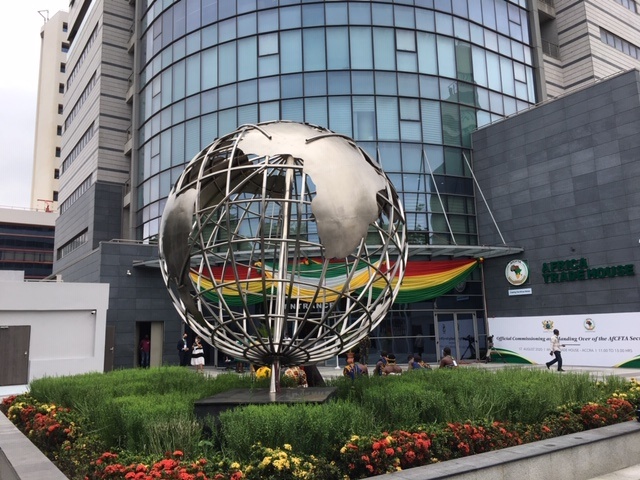Programmes officer of the African Continental Free Trade Area (AfCTA), Divine Kutortse, has revealed that his outfit is currently evaluating its trade agreements to meet the needs of women in cross-border trade.
He said this at the just-ended National Women’s Conference on the Africa Continental Free Trade Area (AfCTA) organised by the Ghana National Chamber of Commerce and Industry in partnership with Gesellschaft fur International Zusammenarbeit (GIZ) in Accra.
According to him, a World Bank study shows that AfCFTA will increase Africa’s income by US$450billion by 2035, and intra-African exports by more than 81 percent. However, as a result of gender gaps in trade across a large portion of the African economy, women are more likely to enter informal trade as opposed to their male counterparts.
He noted that since women account for about 30 percent of informal private businesses, and account for around 13 percent of Africa’s gross domestic product, (GDP), the strategic removal of tariffs and non-tariff barriers (NTBs) is vital to empowering women.
“Women form a chunk of our cross-border trade, so there’s a need for us to also integrate women and youth in our trade laws. Currently, we are reviewing our trade policies and agreements to see how we can integrate and make sure they align with women in cross-border trade,” he said.
Among other things, he noted that the continental trade agreement – if driven by women and youth, who are among the continent’s most valuable assets –will be a primary catalyst for unlocking the country’s enormous potential for cross-border trading. To achieve the Sustainable Development Goals (SDGs) and the African Union Agenda (AU) agenda 2063, he argued that priority must be given to investments in women and youth in all aspects of the AfCFTA implementation.
Mr. Kutortse reiterated that Women involved in cross-border trade contribute significantly to Africa’s gross domestic product (GDP). However, they face specific constraints which undermine their economic activities – access to technical information, financial constraints, and are often being subjected to harassment and extortion at the border.
“Women are more readily denied access to key trader networks and information about the relevant procedures. Time-consuming trade measures and documentary requirements impinge more heavily on women. They are less able than men to get the necessary inputs and materials, which further hinders their competitiveness in overseas markets.
“Information is a key fundamental in trading. We found that getting one-stop information on trade, especially trade data in Ghana, is quite cumbersome,” he said.
In lieu of this, he emphasised that AfCFTA is developing a portal called the Ghana Trade Information Repository to provide one-stop information with the comfort and convenience of clicking a button.
Speaking at the same event, President-Ghana National Chamber of Commerce, Clement Osei Amoako, reiterated the chamber’s commitment to ameliorating the innumerable hurdles that face women in cross-border trading.
He noted that the chamber, with support from the GIZ, has dedicated this year to addressing the specific needs of women businesses and fostering an environment conducive for the success of women entrepreneurs and youth within the AfCFTA framework. Production challenges, financial difficulties, pricing issues and barriers to dealing with regulatory bodies are among issues that the chamber is currently addressing.
Mr. Osei Amoako urged all relevant stakeholders to fully empower women and youth to take advantage of the AFCFTA’s benefits. This, he said, requires a concerted effort.
“I encourage government authorities, financial institutions, civil society, women and youth organisations, faith-based organisations and development partners to join hands in creating a nurturing environment for women and youth to thrive,” Mr. Amoako added.










